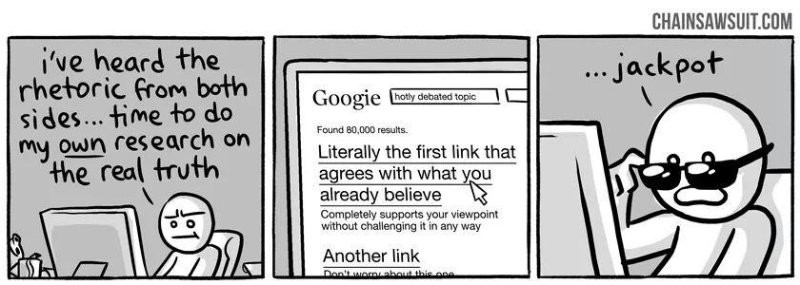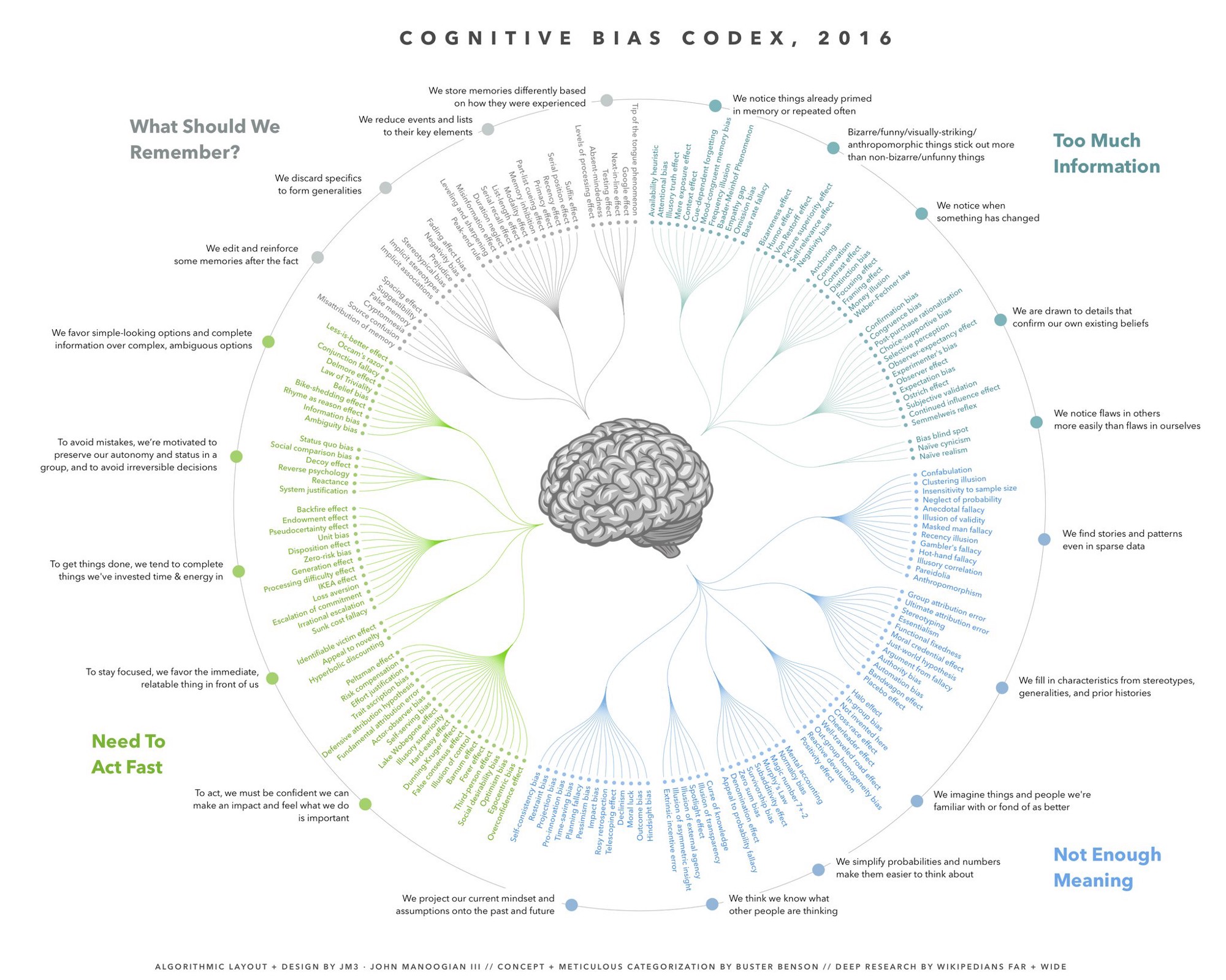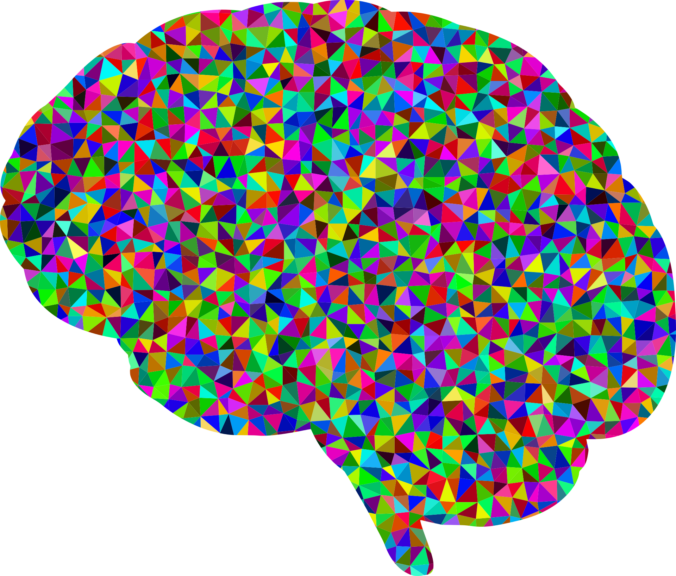How do humans deal with complex problems?

One of the biggest problems we as humans have to overcome when thinking about complex problems is our set of innate cognitive biases. Evolutionarily speaking, we’ve developed a set of specific cognitive strategies to help us understand the world better and more efficiently – but they don’t come without serious trade-offs.
Buster Benson (of Better Humans) wrote a great article about the constellation of cognitive biases and categorized them according to what kind of mental problem they attempt to address. As he explains, these biases may have developed for a good reason, but they also introduce systematic mental errors into our reasoning:
Every cognitive bias is there for a reason — primarily to save our brains time or energy. If you look at them by the problem they’re trying to solve, it becomes a lot easier to understand why they exist, how they’re useful, and the trade-offs (and resulting mental errors) that they introduce.
Where does this cognitive strategy go wrong?
There are some pretty big potential pitfalls that we can systematically fall into if we’re not aware of the way our brains process information – especially when problems start to get more complex. Benson lists the following cognitive traps stemming from our mental biases:
- We don’t see everything. Some of the information we filter out is actually useful and important.
- Our search for meaning can conjure illusions. We sometimes imagine details that were filled in by our assumptions, and construct meaning and stories that aren’t really there.
- Quick decisions can be seriously flawed. Some of the quick reactions and decisions we jump to are unfair, self-serving, and counter-productive.
- Our memory reinforces errors. Some of the stuff we remember for later just makes all of the above systems more biased, and more damaging to our thought processes.
When it comes to analyzing complex issues, especially those filled with lots of uncertain information, these seemingly minor drawbacks turn into major systematic flaws of reasoning and interpretation. There’s nothing we can do to change the way our brains work, but by being aware of our innate cognitive biases, we can actively counteract them. Rootclaim provides a platform that forces people to analyze complex issues in an objective way, eliminating the potential to fall into these traps of intuition. As Benson sums up:
Cognitive biases are just tools, useful in the right contexts, harmful in others. They’re the only tools we’ve got, and they’re even pretty good at what they’re meant to do. We might as well get familiar with them and even appreciate that we at least have some ability to process the universe with our mysterious brains.
Show me the list!
Finally, check out this cool visualization of all the cognitive biases, categorized by type of mental problem they address:



Leave a Reply